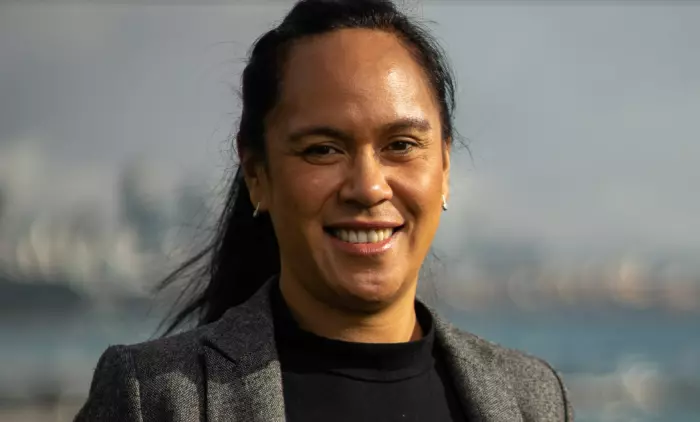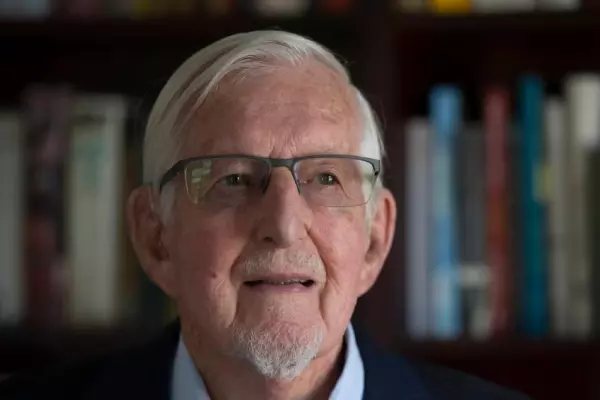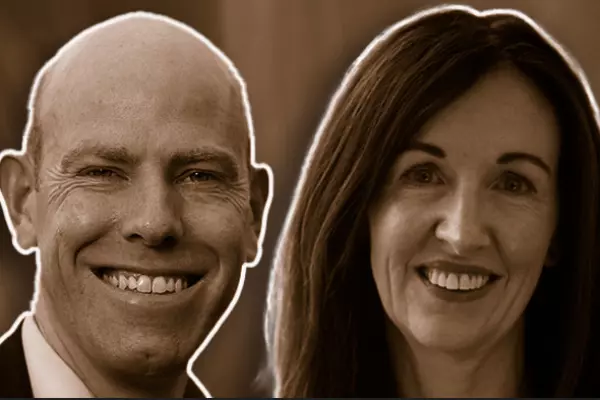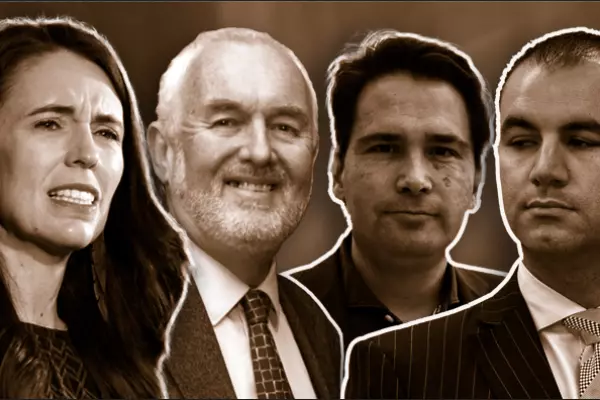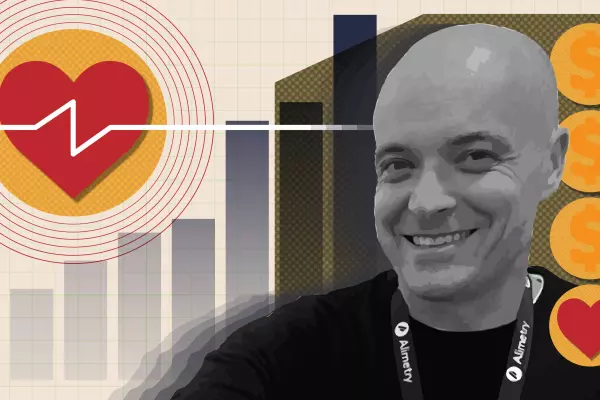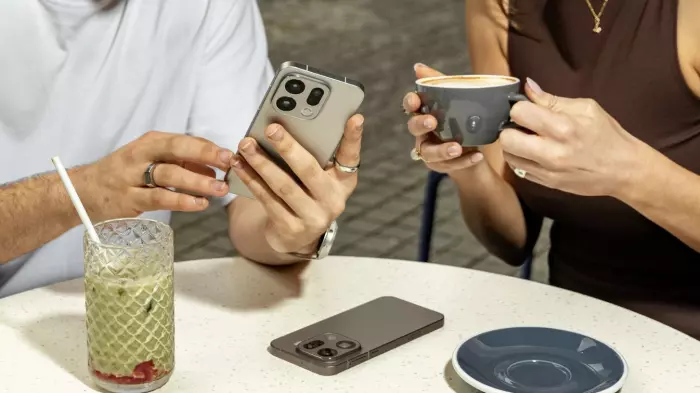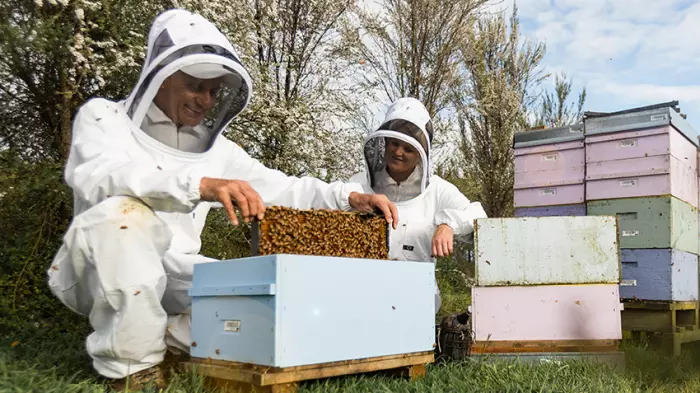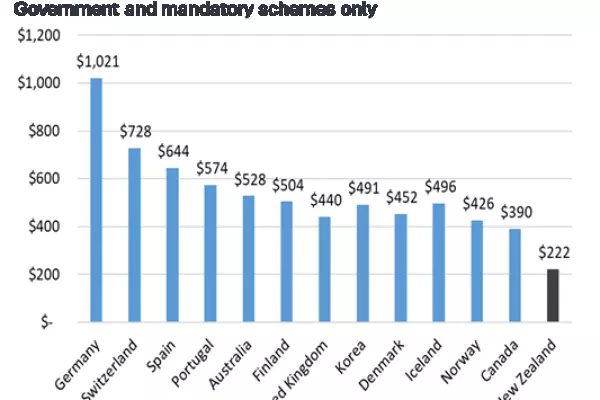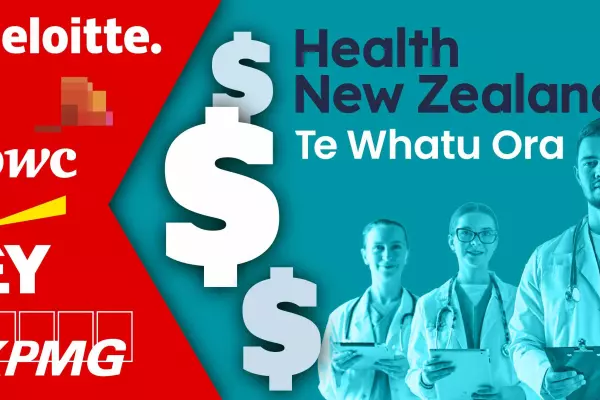A groundbreaking Ngāti Whātua Ōrākei initiative to provide private health insurance cover to the hapū is helping to break down access barriers to health care for Māori.
This year marks the fifth anniversary of the partnership between Ngāti Whātua Ōrākei and nib, the country’s second-largest health insurer.
More than 5,100 of its 6,700 registered members are now enrolled, and $10 million in claims has been paid out since 2018.
Solo mother-of-four Anahera Rawiri, who was working for the hapū’s commercial arm, Whai Rawa, when she led the RFP (request for proposal) process and later rollout of a partnership with nib, says the scheme has been a game-changer, not only for the group as a whole but for her own family.
Her six-year-old son, Te Ahikaaroa, had grommets inserted to treat ongoing ear problems in 2019, and she had her gall bladder removed in a private hospital last year.
Without health insurance, her son would have faced at least a six-month wait for treatment in a public hospital. By the time he had surgery, he was already having behavioural issues at school because he couldn’t hear properly. A further wait could have had long-term effects on his education.
Rawiri says she was told she wasn’t in enough pain to qualify for publicly-funded surgery, despite being referred by her doctor to a hospital accident and emergency department for her severe gall bladder inflammation.
“The only way I could get it done [in the public sector] was if I was nearly dead. But two weeks after I saw my private specialist, I was in the operating theatre.”
She says the public hospital called back about a pre-surgical consultation two months later. The procedures had already paid for the price of her policy many times over.
“My mother was a tribal board member for Ngāti Whātua when I was growing up and she never dreamed that her grandchildren would have private health insurance and would never have to worry about being at the bottom of the rung, having to wait months to get something done.
"This is what our people have fought for. Our iwi has decided to do it because the system is never going to give us the service we deserve, and our children deserve.”
Another who has more than recouped the cost of their policy to the hapū is tribal elder Sharon Hawke, the daughter of politician and land rights activist, the late Joe Hawke.
Access to the best
In 2021, at the age of 58, she had a double knee replacement but six weeks into her rehabilitation she was diagnosed with breast cancer. She says the insurance gave her access to “the best breast surgeon in the world” for a double mastectomy two weeks later, followed by a private oncologist for her chemotherapy and radiotherapy.
“Going private allowed it to be dealt with sooner rather than later. I got on to every list at the top. I’m grateful.”
She says her health now is “superb".
"It’s been a big haul – I lost my dad two days after I finished radiation – but I can say now my pilot light is lit.”
The insurance policy has been designed by the members themselves to meet their needs, rather than having an existing plan foisted upon them, says Rawiri.
Its coverage includes Rongoā Māori treatment of up to $500 a year, mental health consultations of up to $2000 a year and dental treatment of up to $1000 a year. It also includes:
- Up to $300,000 per person a year for private hospital surgery.
- Up to $200,000 per person a year for private non-surgical hospitalisation, including cancer treatment.
- Specialist consultations, even when unrelated to hospitalisation.
- GP visits up to $350 per person a year.
- Glasses and contact lenses up to $250 per person per year.

Ngāti Whātua Ōrākei's Teara Gillman with Tom Irvine (Image: Supplied).
Teara Gillman, Ngāti Whātua Ōrākei general manager of health, says it’s the first time Rongoā Māori medicine has been included in a policy. It includes mihimihi (massage), whitiwhiti korero (talk therapy and cultural support and advice) and traditional plant-based medicines. Since Rongoā medicine was included in policies in 2020, more than 150 people have claimed for the treatments.
Gillman worked at nib as iwi relationship manager – the insurer employs two at any one time – for seven months in 2020-21 and says the partnership has included nib’s management team learning te reo and tikanga and about the iwi itself.
This has meant they’ve worked together to create a policy that fitted their needs.
A claims-free experience
She says they’ve also worked hard for a “claims-free experience”, so members didn’t have to pay first and claim later.
“Even spending $30 at the GP and another $30 at the pharmacy might have been a barrier for some.”
The current public system “makes the specialists important and puts whānau second, and it should be the other way around. It’s just switching the way we are thinking and going more into the Māori approaches that work for us.”
The biggest usage has been in primary care, an essential part of the Ngāti Whātua Ōrākei’s prevention-based strategy for the future.
“The barriers are access, whether from dollars or navigation,” says NWO chief executive Tom Irvine. “When you have a public system, you just become a number, you wait in line and then the line changes and you go to the back of the line, and you never know when you are going to end up there.
"This brings certainty: I can get that treatment, I know I’m going into surgery next week and it’s pre-approved. And I don’t have to pay.”
Rawiri says she and her team drove the message of the importance of access to GPs.
“You can’t get to a surgeon unless you are referred – the GPs are the gatekeepers. But when you’ve never had insurance before, do you know that? No.
"At the start, we rang everyone who was enrolled and said, do you have a GP? It was amazing how many people were going to the ED [emergency department] to be seen because they felt they couldn’t engage with the GP or the GP was racist, or the GP really made them feel like they shouldn’t be there.
"You walk in and you are sick and they say, ‘Can you pay for this?’ Our people are like, ‘Oh my god, I’m sick but what can I do? I’m going to leave.’”
There was a low uptake of the insurance in the first year because many were sceptical about the scheme. “We had to go through 18 months of an education programme. I remember going to 33 locations on a road show to share this with all the Ngāti Whātua members and they were saying, ‘This is a lie, this is too good to be true; it’s a scam'.
"It took us a long time to get our people to trust that this investment was for their benefit and for the hauora [physical, mental, social and spiritual wellbeing] of our people so that we can grow.”
Rawiri is now a consultant for nib and is working with other iwi to see how they might partner with the insurer.
Te Runanga o Ngāti Porou on the East Coast has a scheme for its workers and she says other iwi are working out how they might best serve the needs of their people. Nib CEO Rob Hennin says there’s plenty of interest from other iwi.
Irvine and his team understand, though, that there’s an inherent unfairness in paying for a service the government has a responsibility to provide, but which is not working well for Māori and others. He says they’re working on how to claw some of that back.
“We have let the crown off the hook and we will hold them to that responsibility hopefully in an innovative way that suits us, not just Ngāti Whātua but all Māori and Pacific communities.”
He says they’re in talks with Te Whatu Ora (Health New Zealand) and Te Aka Whai Ora (the Māori Health Authority) and hope they will lead to a reduced spend on health insurance and a commitment from the government agencies to step up.
National leader Christopher Luxon vowed in January to scrap Te Aka Whai Ora if the party is elected in October.
“Election years are dangerous for health,” says Irvine. He believes nib will be “fine with that”, given the nature of their relationship, which has included nib’s management team learning te reo and tikanga.
Neither Irvine nor nib would comment on how much the cover was costing. Irvine would say only that more is being spent on the policies than is being claimed.
Gillman says Ngāti Whātua Ōrākei’s health strategy combines health insurance with a vast range of primary care and social services, including screening tests and immunisations, many offered from its Tamaki hub in Glen Innes which was set up last August as a covid vaccination centre. In the coming months, it hopes to launch a mobile outreach team, so nurses and doctors can give in-home care to kaumatua and those with transport difficulties.
Former wharfie and mechanic, kaumātua Temepara Morehu is still mobile but is another of the tribe who has taken advantage of the insurance scheme. He has regular GP appointments for his insulin-dependent diabetes, audiology consultations about his tinnitus, and had a lung scan at Mercy Hospital for suspected emphysema, which proved negative.
“For us oldies here in the kaumātua village, it’s taken away the fear. Everyone knows about nib, that they can go to the doctor and get fixed up, they don’t have to worry. With the insurance, we just walk into the doctor and walk out.”


